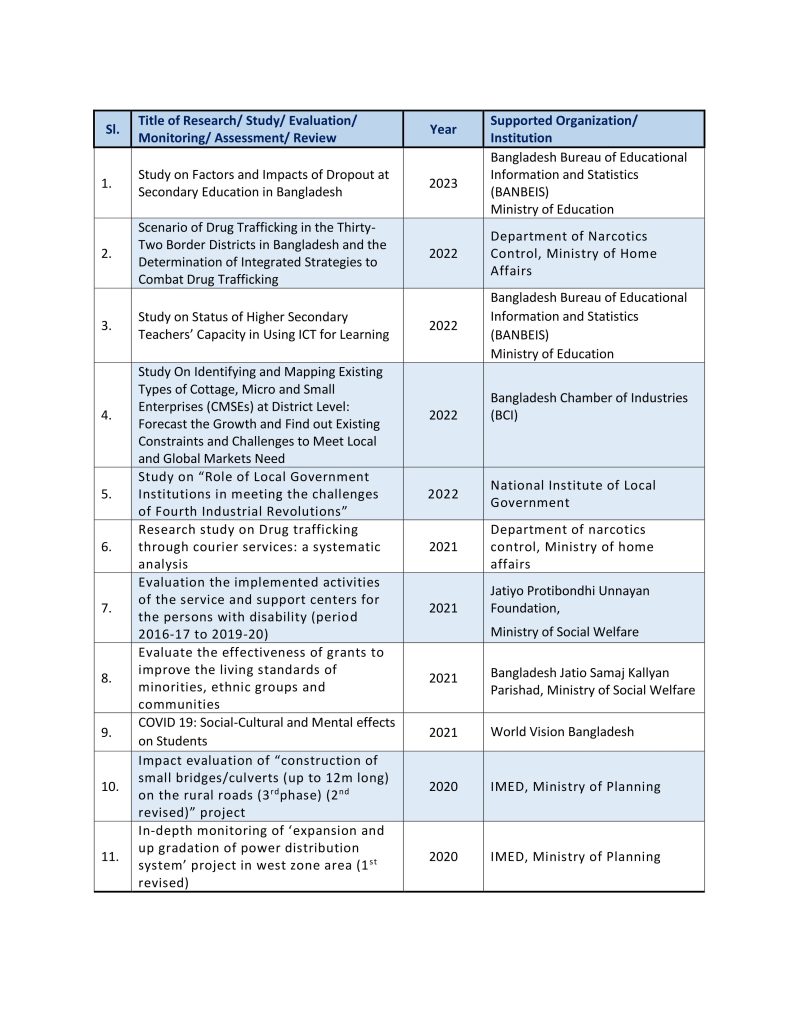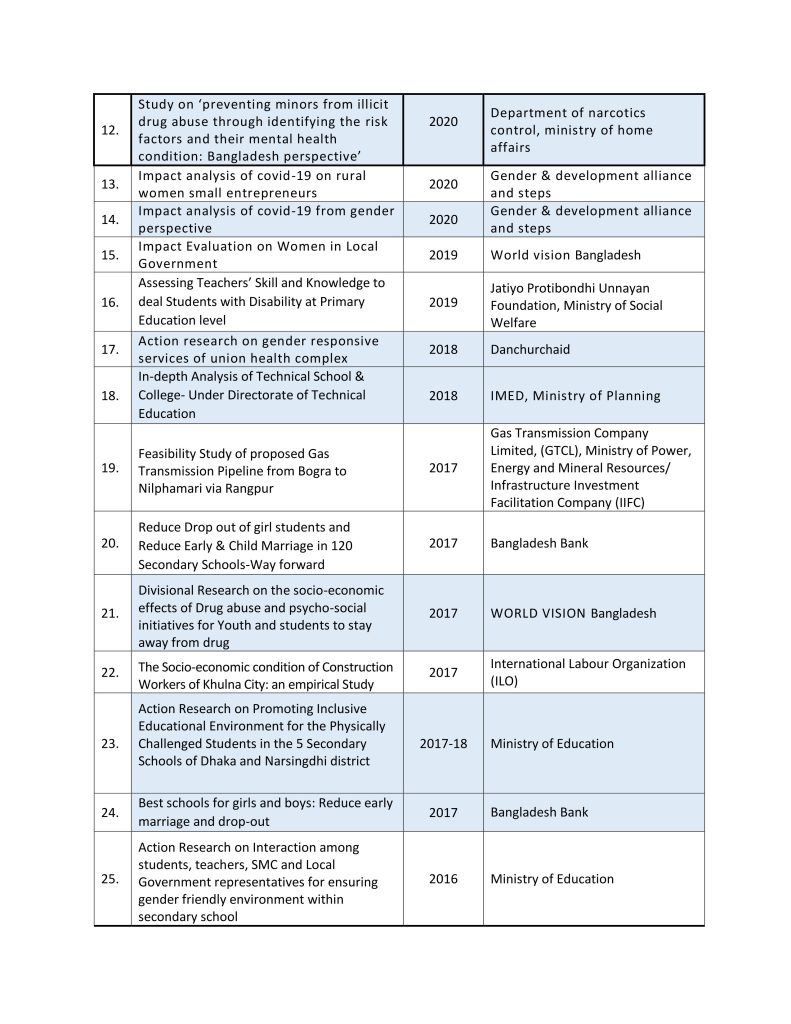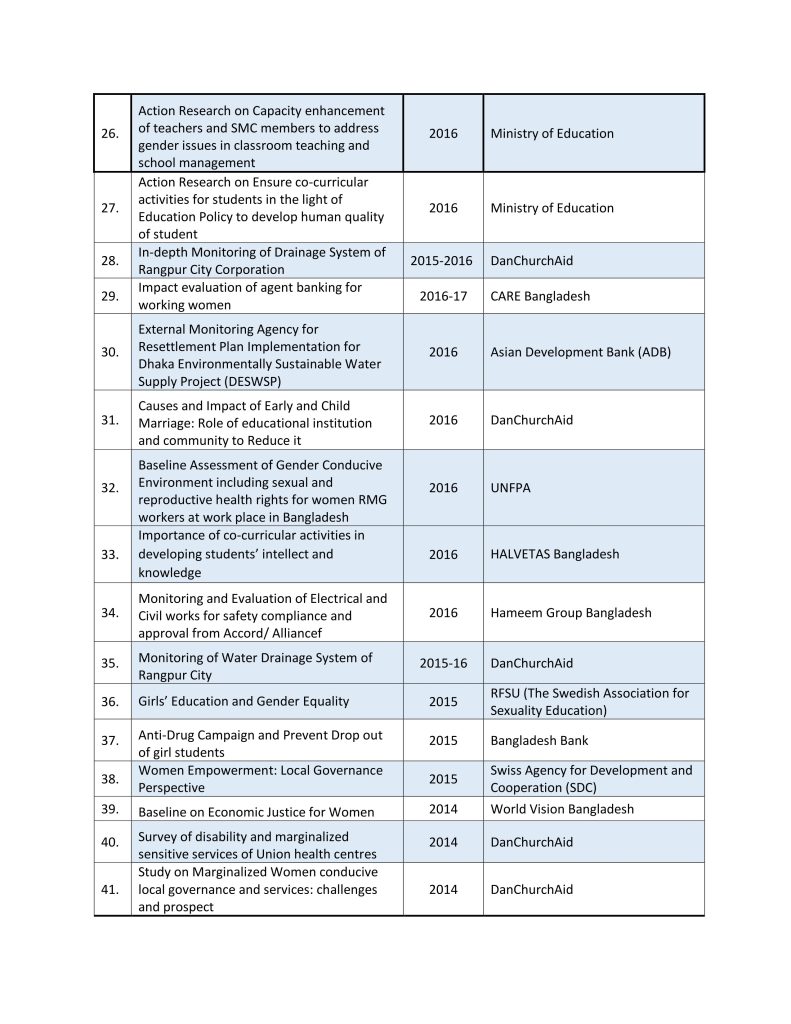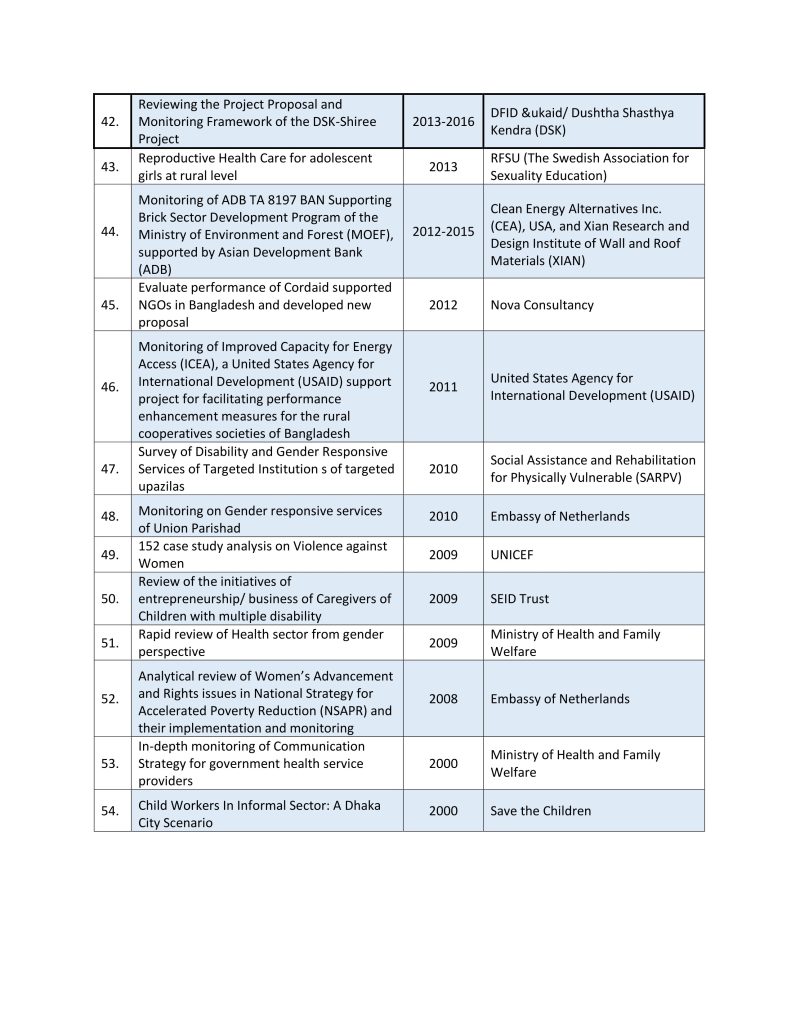Study and research
Steps carries out monitoring and research to see the changes at both field and national level, and to help take the right measures in right time and to track the programs in terms of achievements and challenges. Steps conducted many quantitative and qualitative research, study and action research. More than 35 researches were conducted by Steps during its journey with different ministries, UN bodies and national and international organizations. The major issues were: Gender, Women Human Rights, Education, Drugs Problem, Women, Children, Youth, Persons with Disability, Health, Road Constructions, Small Cottage and Micro Enterprises, Indigenous Communities, Agriculture, Climate Changes, Power and energy, SRHR, GBV and Early and Child marriage and Mental Health. In addition, some of its recent studies include disaster vulnerability, entrepreneurship development, community health care management, fair wage of agriculture labor, youth leadership, drop-out of secondary students, quality and inclusive education, socio-economic impact of bridge/culvert on rural roads, mental health, gender responsive teaching method and management etc.
Steps’ experience in quantitative and qualitative research
Steps conducted many quantitative and qualitative researches in its working phase. In last few years it has conducted some major studies such as in 2022 conducted study on “Identifying and Mapping Existing Types of Cottage, Micro and Small Enterprises (CMSEs) at District Level: Forecast the Growth and Find out Existing Constraints and Challenges to Meet Local and Global Markets Need” supported by Bangladesh Chamber of Industries (BCI). The study done in 64 districts showing the status of CMSEs including human resources, production and marketing strategies.
Study on “Status of Higher Secondary Teachers’ Capacity in Using ICT for Learning” was conducted in 2022 with the support of Bangladesh Bureau of Educational Information and Statistics (BANBEIS), Ministry of Education. The study objective was to find out higher secondary teachers’ capacity in using ICT devices and their needs for improvement. The study conducted in 16 districts.
In 2022, it also has conducted Study On “Scenario of Drug Trafficking in the Thirty-Two Border Districts in Bangladesh and the Determination of Integrated Strategies to Combat Drug Trafficking” with the support of Department of Narcotics Control, Ministry of Home Affairs. The study revealed status of drug trafficking in 32 border districts along with strategy, challenges and way forwards for reducing drug trafficking.
Research study on “Drug trafficking through courier services: a systematic analysis” was done in 2021 with the support of Department of narcotics control, ministry of home affairs. The study was done to find out the strategy and pushing factors for increasing drug trafficking through courier services in recent days. It also showed some way forwards for combating the drug trafficking.
Experience of in-depth monitoring
Steps has conducted a number of In-depth monitoring over the tenure of its working. In 2020, it has conducted ‘Expansion and upgradation of power distribution system’ project in west zone area (1st revised), supported by IMED, ministry of planning. The focus area of this study was to assess the status of implementation of project tasks as well as its impacts on stakeholders. Ongoing and potential challenges also identified.
It has also conducted an In-depth monitoring on “Communication Strategy for government health service providers” in 2000, supported by Ministry of Health and Family Welfare. The study was conducted in selected rural and urban areas for identifying the challenges and possible measurement for improving the communication strategies of government health service providers.
During 2015-2016, it has conducted In-depth Monitoring on “Drainage System of Rangpur City Corporation’ supported by DanChurchAid. Identifying the status of drainage system Rangpur City and how it is affecting the life of urban people was the focus area of that assignment.
Experience in impact evaluation
In 2020 Steps conducted an Impact evaluation on “Construction of small bridges/culverts (up to 12m long) on the rural roads (3rd phase, (2nd revised)” project supported by IMED, Ministry of Planning. The aim of the assigned task was to see the impact and effectiveness of constructed bridges on residents of the project areas. “Impact analysis of Covid-19 on rural women small entrepreneurs” also conducted in 2020, supported by Gender & Development Alliance and steps. The analysis identified the adverse impact of Covid-19 pandemic on small entrepreneurs especially on women. In the same year, Steps also conducted an impact analysis to see the impact of Covid-19 from the gender perspective. This analysis also done with the support of Gender and Development alliance.
In 2019, Steps conducted Impact Evaluation on Women in Local Government supported by World Vision Bangladesh. The focus of that study was identifying women’s contribution in local government, and how it is improving the services of local government.
Experience in policy review
Steps reviewed policies and documents for government, development partners and civil society organization several times. In 2009, it has reviewed “The initiatives of entrepreneurship/business of Caregivers of Children with multiple disability” with the support of SEID Trust. In the same year, it conducted Rapid review of Health sector from gender perspective, supported by Ministry of Health and Family Welfare. The review revealed challenges and potentiality of health sector in the gender lens. An Analytical Review was done on Women’s Advancement and Rights issues in National Strategy for Accelerated Poverty Reduction (NSAPR) and their implementation and monitoring in 2008 for The Embassy of Netherlands.
Experience in baseline survey
Steps, in association with UNFPA, conducted a Baseline Assessment of Gender Conducive Environment including sexual and reproductive health rights for women RMG workers at work place in Bangladesh in 2016. The study revealed the condition of women workers of RMG sectors in the gender perspective. Total 10 RMG factories were selected under this study.
A Baseline on “Economic Justice for Women” was conducted by Steps in 2014 for World Vision Bangladesh. Women labor’s economic conditions and fair justice in case of wages were identified through this study.
Steps conducted a Feasibility Study during 2017 for Gas Transmission Company Limited, (GTCL), Ministry of Power Energy and Mineral Resources as well as Infrastructure Investment Facilitation Company (IIFC). The focus area of the study was
Research Data Sheet/Notable research/studies conducted by Steps:
List of Accomplished tasks




